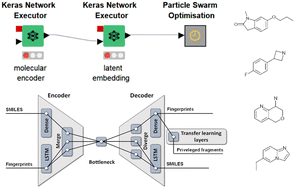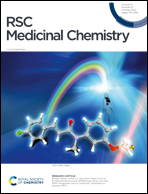Implementation of an AI-assisted fragment-generator in an open-source platform†
Abstract
We recently reported a deep learning model to facilitate fragment library design, which is critical for efficient hit identification. However, our model was implemented in Python. We have now created an implementation in the KNIME graphical pipelining environment which we hope will allow experimentation by users with limited programming knowledge.

- This article is part of the themed collection: Fragment-based drug discovery


 Please wait while we load your content...
Please wait while we load your content...